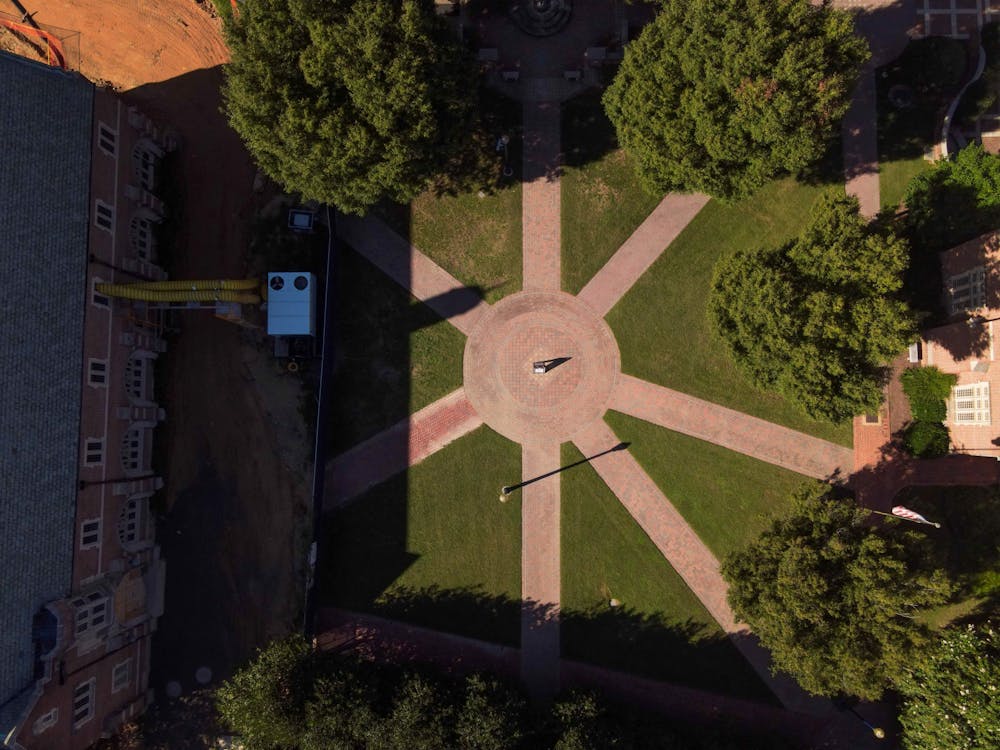On Oct. 8, 2020, Executive Vice President and Provost Jeffery Legro and Vice President of Student Development Steve Bisese announced via email to the University of Richmond community that spring break would not be occurring in the spring 2021 semester. Now, as final exams have recently ended, students are feeling the mental and emotional effects of not having a mid-semester break from school.
Instead of spring break, UR provided students with two wellness days, on Feb. 9 and April 7, as well as a light workload week from March 1 to March 5, according to the spring 2021 academic calendar.
UR decided to begin the spring semester a week later than usual, which was a result of the omission of spring break, Legro and Bisese wrote in the email.
"Just as we did for the fall, our plans for the spring semester involve an approach that maintains the University of Richmond’s commitment to providing a top-quality, residential, educational opportunity while also doing all we can to mitigate the risk of COVID-19 infection within our campus community," Bisese and Legro wrote. "We are confident that all our students will continue to do what is necessary to support a safe spring semester."
Sophomore Mason Manley said he felt affected by the lack of spring break. Although the light work week and wellness days were intended to replace the week off, they did not live up to expectations, Manley said.
Due to social distancing guidelines, Manley said he found it difficult to relieve his stress over weekends. Spring break would have been a welcome addition, Manley added.
“We only have two days off like the entire semester, which is just nowhere near enough,” Manley said. “To say our semesters run for like, like almost five months. ... It's just ridiculous to, like, expect students to be able to keep up with that.”
Manley said he was assigned more work than normal during the light workload week and spent the wellness days doing school work.
“Light workload week was just -- for me at least -- it was just a joke,” Manley said. “I had two tests that week, a quiz, I think I had a problem set and then just, like, classes normal with readings and everything. I know some people have a lighter workload but I've heard of a lot of people who, like, just had no break.”
Manley was frustrated by the actions of professors during this already stressful semester and found it ironic that professors would ask students to spend time de-stressing and continue to assign the same amount of work as usual, he said. Manley found himself asking for extensions on assignments since he was struggling with managing his workload and his stress, he said.
However, every time he asked for an extension on an assignment, one was granted to him, Manley said.
“In my view, I shouldn't have to be asking for extensions,” Manley said. “[The professors] should kind of be proactively reducing the amount of stress we have.”
Enjoy what you're reading?
Signup for our newsletter
Sophomore Violet Jetton knew that she would feel the effects of a lost spring break this semester because she had recalled needing a break during the spring 2020 semester, she said.
“I think, like, the fact that we don't have any breaks until the end of the semester is just exhausting in of itself,” Jetton said.
Jetton had a similar experience to Manley during the light work week and wellness days, she said. Those options were not adequate substitutes for a spring break, Jetton said.
“My professors, you know, virtually ignored [wellness days],” Jetton said. “We might have not met, but also, like, stuff was still due. So it was not helpful and didn't substitute spring break.”
The light work week seemed like a normal week, Jetton said. Her workload was not cut down and it did not provide her with a much needed break, she said.
Junior Mia Dini, a Counseling and Psychological Services outreach intern, agreed with Jetton and Manley.
Dini knows many students who used the wellness days to catch up on work that they fell behind on, she said, and Dini’s workload increased dramatically the week after the light workload week and caused her more stress.
“There's that aspect of it where students just feel so overwhelmed because their entire semester, like January through May is just go, go, go, and that's why we're seeing so much burnout right now,” Dini said. “But, also, students are used to having a spring break, so not having one creates this cognitive dissonance.”
CAPS Director Peter Leviness also recognized the role that missing spring break can play on a student’s mental health. UR made the right decision to eliminate spring break this semester, he said, yet students certainly felt the impact of an insufficient break.
“We're all doing 2020 hindsight, right?" Leviness asked. "Nobody had a playbook for this, right? Nobody said, 'Okay if you have a pandemic, this is what you should do.' It's really everyone trying to make the best decisions possible under a very unusual and demanding kind of set of circumstances.”
The efforts to replace spring break did provide some sort of rest time for students, Leviness said, but there were simply not enough of those rest days. UR should have provided students with five wellness days dispersed throughout the semester to make up for the lost spring break, he said.
“[Wellness days] probably didn't replace what it would have been like to have a whole week off," Leviness said. "It was better than not having [them]."
Jetton agreed with Leviness. However, she said that wellness days should have been placed on a Monday or Friday so that students would have three-day weekends.
“I think, at this point, making it a three-day weekend, ... it's no more harmful than giving us a Wednesday off,” Jetton said. “I get why they don't want to give someone a three-day weekend to go off campus more, but people are going off campus anyways.”
According to the UR COVID-19 response website, changes to the 2021 academic calendar were intended to provide students with the opportunity to rest while remaining on campus.
Contact features editor Susanna Getis at susanna.getis@richmond.edu.
Support independent student media
You can make a tax-deductible donation by clicking the button below, which takes you to our secure PayPal account. The page is set up to receive contributions in whatever amount you designate. We look forward to using the money we raise to further our mission of providing honest and accurate information to students, faculty, staff, alumni and others in the general public.
Donate Now



